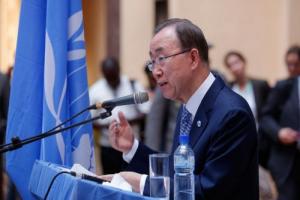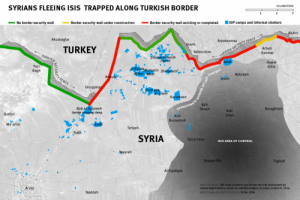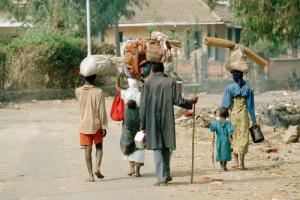Human Rights
Saudi Arabia: A Move to Curb Religious Police Abuses
Saudi Arabia’s Council of Ministers issued a sweeping new regulation on April 13, 2016, curtailing the powers of the country’s religious police. The council removed the authority of the Committee for the Promotion of Virtue and the Prevention of Vice, or religious police, to arrest, pursue, or request documents or ID cards from suspects.
- Read more
- 506 reads
Gambia: Investigate Death in Custody, Free Protesters
The suspicious death in custody of opposition political leader Solo Sandeng and the arrest of his party leader, Ousainu Darboe, and other party members in recent days underscore the repressive nature of the Gambia’s government, Human Rights Watch, Amnesty International, and ARTICLE 19 said on April 18.
- Read more
- 462 reads
Saudi Arabia: 3 Alleged Child Offenders Await Execution
Three Saudi men are awaiting execution for alleged, protest-related crimes committed while they were children. Saudi judges based the capital convictions primarily on confessions that the three defendants retracted in court and said had been coerced. The courts did not investigate the allegations that the confessions were obtained by torture. Saudi Arabia’s announcement on March 11, 2016 that it will execute another four men for terrorism offenses raises fears that one or all three of the sentences could be carried out.
- Read more
- 604 reads
Gambia: Ban calls for release of detained protesters after death of opposition members

Secretary-General Ban Ki-moon.
- Read more
- 495 reads
Nepal: End Intimidation of Human Rights Commission
The Nepal government should immediately stop all intimidation and harassment of the National Human Rights Commission (NHRC) and its staff and respect its independence in line with international standards, Amnesty International, Human Rights Watch, and the International Commission of Jurists (ICJ) said on April 14. The attempts to intimidate the NHRC are a direct contradiction of the United Nation’s Principles relating to the Status of National Institutions (the Paris Principles) as well as Nepal’s constitution, the rights organizations said.
- Read more
- 522 reads
Turkey: Open Borders to Syrians Fleeing ISIS

- Read more
- 677 reads
North Korea: Kim Il-Sung’s Catastrophic Rights Legacy
As North Korea prepares to celebrate the birthday of the country’s late founder and perpetual president, Kim Il-Sung, on April 15, the world should urgently demand an end to the systematic and pervasive human rights abuses taking place today in North Korea, Human Rights Watch said on April 12. Kim Il-Sung’s birthday is known as the “Day of the Sun” and is the most important national holiday of the year in North Korea, traditionally celebrated with events throughout April which include song and dance performances, athletic competitions, exhibitions, firework displays, and paying respect to the ubiquitous monuments to Kim Il-Sung.
- Read more
- 489 reads
Australia: Turnbull Should Spotlight China’s Abuses
Australian Prime Minister Malcolm Turnbull should use his first official visit to China to speak out about human rights concerns, Human Rights Watch said on April 12, in releasing a letter to Turnbull.
- Read more
- 386 reads
Ban highlights need to fight ‘genocide ideology,’ as UN reflects on 1994 atrocities in Rwanda

Rwandan refugees, who fled the genocide, returning in July 1994 from Goma, Zaire, (now the Democratic Republic of Congo, DRC).
- Read more
- 435 reads
Malaysia: Ensure Independence of the Bar
The Malaysian government should reject a proposal made during parliamentary debates that the attorney general head the independent Bar Council, Human Rights Watch said on April 10, 2016. Such an action would give the government effective control over an institution that has long been an outspoken defender of human rights and the rule of law, and would threaten the independence of the country’s legal profession.
- Read more
- 375 reads
Human Rights
Fostering a More Humane World: The 28th Eurasian Economic Summi

Conscience, Hope, and Action: Keys to Global Peace and Sustainability

Ringing FOWPAL’s Peace Bell for the World:Nobel Peace Prize Laureates’ Visions and Actions

Protecting the World’s Cultural Diversity for a Sustainable Future

Puppet Show I International Friendship Day 2020

